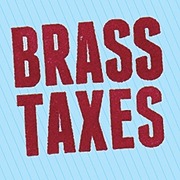Additional Common Questions
What do I do if I overcontribute to my Roth IRA?
It's really easy to get a Roth IRA started, but unfortunately, there aren't a lot of guardrails in place to prevent you from contributing too much. Here's what we mean by overcontributing and how to resolve it.
Updated 6 days ago
What can I contribute to my Roth IRA?
Overcontributions (or "excess" contributions) can happen for a few reasons:
You contributed more than the yearly limit: The 2025 contribution limits are $7,000 for people under 50 and $8,000 for people over 50.
You earned less than expected during the year: You have to have taxable income to make a contribution. That's income that comes from wages, salaries, tips, professional fees, bonuses, and other amounts received for providing personal services. If you were taking a break from work and using savings, or received help from family for a bit, but didn't earn much taxable income, you may not be able to contribute to your Roth IRA.
You earned more than the income limit: This is something that's not well-publicized, but if you earn over a certain amount, you won't be able to contribute to a Roth IRA at all (for 2025 that's $165,000 for single filers, and $246,000 for married filing jointly folks). There's also a range of incomes as you approach that cutoff amount where you can only make partial contributions. If you are married and filing separately, you cannot contribute to a Roth IRA if your income is over $10,000. If you're one of these situations, you may be able to do a backdoor Roth contribution (you can ask us about that or read up on it here).
I contributed too much. What do I do now?
You did the thing, and now you have a better picture of what happened, but how do you correct it? You have options!
Most importantly, you'll likely need to withdraw the money. This can be done before or after filing your taxes, but the timing matters:
Before the tax deadline (or the extension deadline if you applied for an extension): Get in touch with the financial institution that holds your Roth and let them know you contributed too much. Say something like: “I made an excess contribution to my Roth IRA totaling XXX dollars. What do I need to do to fix this?” Some plans will require you to submit the request in writing, some will let you handle the request by phone. Either way they should guide you through the process (this happens all the time, they know what to do about it).
After filing your taxes: The process is pretty much the same as the above. However, you will also need to file an amended tax return for the year you made the overcontribution.
Earnings will have to come out too. Because you put the money into your investment account, it was likely earning money. When you withdraw the overcontribution, you'll also have to take out any money you earned from that investment activity. Again, your financial institution will help you. You don't have to figure that out on your own; they've got a simple formula for figuring it out.
In your tax appointment, we'll also help you figure out if you owe any penalties on the overcontribution and earnings.
In some cases, instead of simply withdrawing, you may be able to do one of the following:
Apply it to the following year: For this you will need to call the financial institution that holds the account and tell them the amount that should be applied to the following year (don't round up or down, give them the exact number). Make sure to remember how much you've pushed forward, so you don’t overcontribute the following year!
Move the money into a traditional IRA: In some cases you may be able to transfer the excess Roth amount to a traditional IRA. The IRS calls this move a “recharacterization.” You want to do this before you file, but if you file your taxes on time and take "corrective action" toward the recharacterization within six months of the filing deadline, that works, too. We can help you figure out if this is an option for you.
Don't do nothing!
If you choose to do nothing, you will have to pay penalties for the money that's been overcontributed and the earnings. This is not a one-and-done penalty; you'll continue to pay penalties every year the overage is left in the account, and you'll most likely end up having to pay to amend your taxes. It's a bigger pain to wait. Just do it now!
All that said, don’t let excess contributions (or worries about them) stand in the way of your retirement savings. We are happy to help you navigate any questions you have. Head over to brasstaxes.com to create an account and book a consultation.

